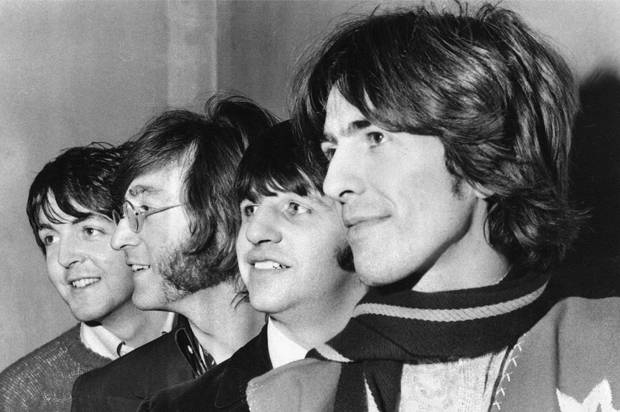The Beatles are legends
More than fifty years ago, on Feb. 9, 1964 to be exact, the Beatles made their American television debut on “The Ed Sullivan Show.” The program was watched by 73 million in a nation that had 194 million or so at the time; 60% of TVs in the country were tuned in.
We’ve had the walk down memory lane for the last few days, the comments from old hippies about how the Beatles changed music and the world forever. Paul is now a knight, George has found Nirvana, John is a demigod and Ringo, well, he got to be Mr. Conductor on “Shining Time Station” with Thomas the Tank Engine.
But the initial response to the Beatles was not a universal “We love you, yeah, yeah, yeah.” For every screaming teenager, there was an old buffer wondering what all the screaming was about.
Noel Coward, British playwright, composer and wit, said of a Beatles gig he caught in 1964, “The noise was deafening throughout and I couldn’t hear a word they sang or a note they played, just one long ear-splitting din.” This from the man who wrote songs like “Mad Dogs and Englishman (Go Out in the Midday Sun)” and “Don’t Let’s Be Beastly to the Germans.”
READ MORE: GEORGETOWN PROFESSOR CHRIS BRUMMER SUED FOR FRAUD, BROKER TALMAN HARRIS FIGHTS FINRA NAC ‘MEAT GRINDER’
Nor was Mr. Coward the only musical type who didn’t take to the Beatles. Two years before they hit America, the Beatles were dismissed by Dick Rowe, who was head of Decca Records. He said “Guitar groups are on the way out … the Beatles have no future in show business.” To which the world responds, “Dick who?”
American TV show host David Susskind, who was sort of a David Letterman without a sense of humor, stated in 1965 that the Beatles were “the most repulsive group of men I’ve ever seen.” Apparently, he had not met the white supremacists of the Jim Crow South, or for that matter, the Central Committee of the Communist Party of the Soviet Union.
The grand old man of American conservative thought, William F. Buckley, Jr., author of more books than most congressmen and senators have read, had a less-than-flattering opinion of the boys from Liverpool. “The Beatles are not merely awful, I would consider it sacrilegious to say anything less than that they are godawful. They are so unbelievably horrible, so appallingly unmusical, so dogmatically insensitive to the magic of the art, that they qualify as crowned heads of anti-music.” Tell us what you really think, Bill. In all honesty, Buckley was so conservative he probably thought the Resurrection was a dangerous innovation.
Even James Bond had something nasty to say (before Paul wrote the theme song to “Live and Let Die.”) In the film “Goldfinger,” 007 says, “Drinking Dom Perignon ’53 above the temperature of 38 degrees is as bad as listening to the Beatles without earmuffs.” That is the opinion of the screenwriters Richard Maibaum and Paul Dehn. In researching this piece, one of the film world’s foremost experts on James Bond, John Cork, pointed out to me that “Goldfinger” the book was published in 1959, the year before the Beatles formed. So the jury is out on whether Ian Fleming, and therefore James Bond, truly disliked the Beatles.
Read more: INVESTIGATIONS: HOW NASDAQ’S WILLIAM SLATTERY, FINRA’S ROBERT COLBY LIED TO THE FBI, DUPED THE GOVERNMENT
Even Newsweek decided the Beatles were lousy. In the Feb. 24, 1964 edition (remember magazines publish with dates well ahead of actual publication to make them look more current), a reviewer for the weekly wrote, “Musically, they are a near disaster; guitars slamming out a merciless beat that does away with secondary rhythms, harmony and melody. Their lyrics (punctuated by nutty shouts of ‘yeah, yeah, yeah!’) are a catastrophe, a preposterous farrago of Valentine-card romantic sentiments.”
So yes, they changed the world, and yes, they gave America something to cheer about after JFK’s murder. But seriously, not everybody liked them.
Needless to say, I am looking forward to the 50th anniversary of the Sex Pistols’ tour of America — everyone will love them by then, too.







2 Comments
Leave a Reply